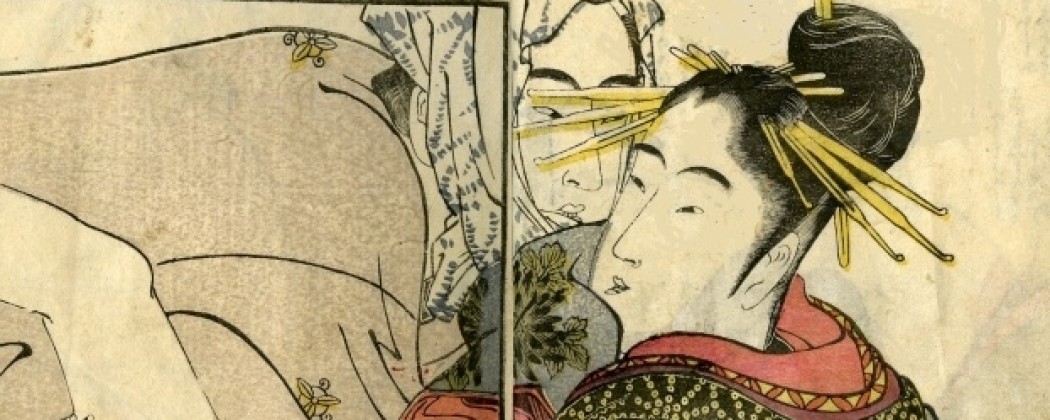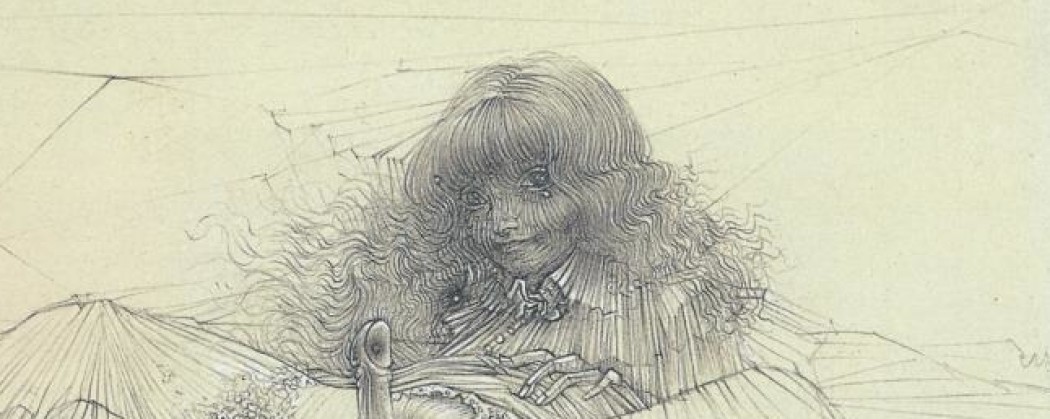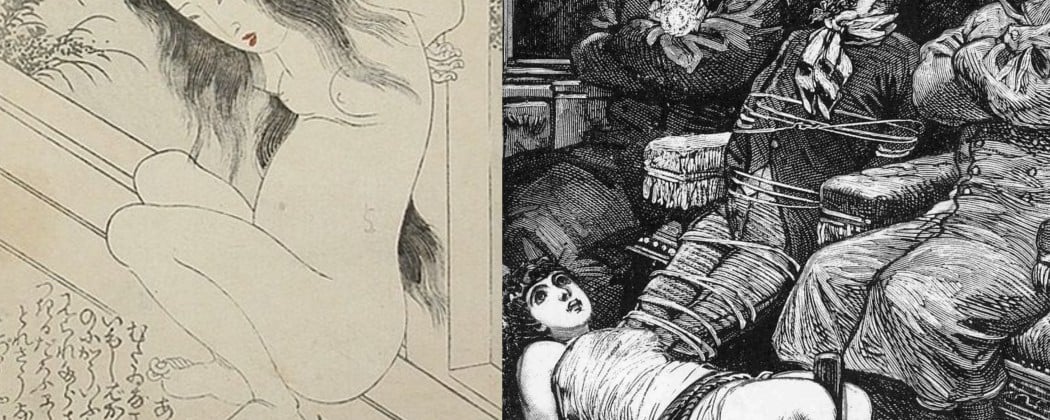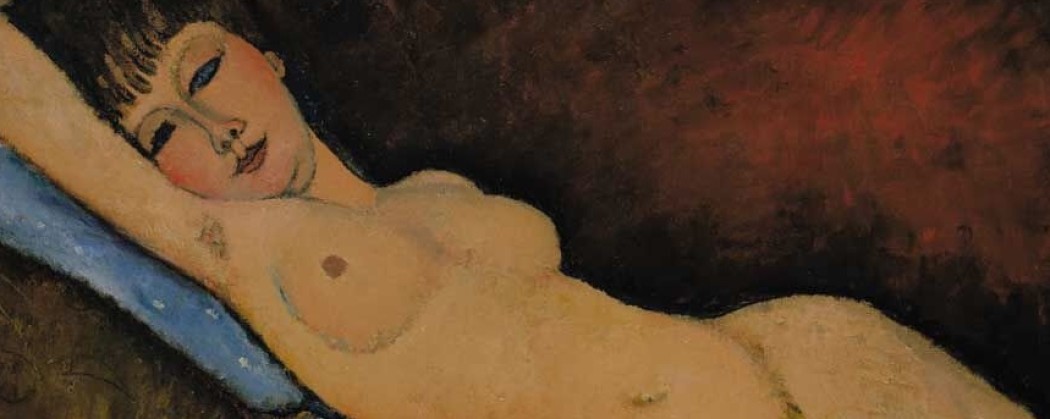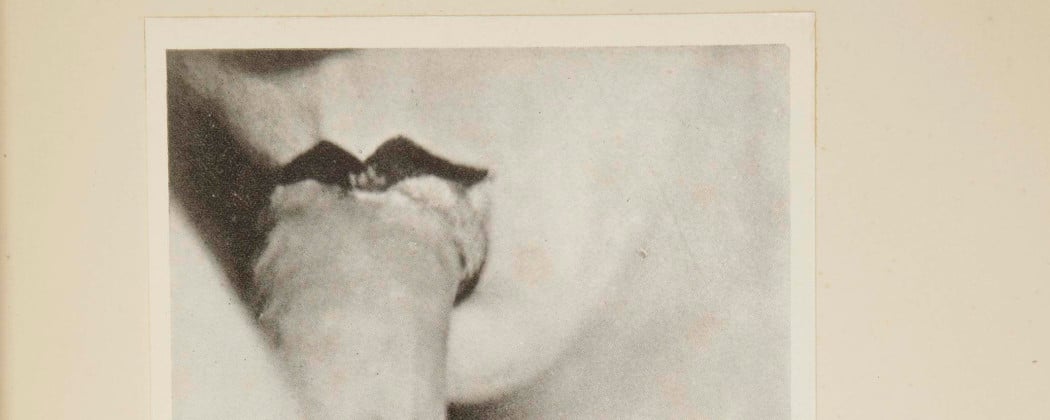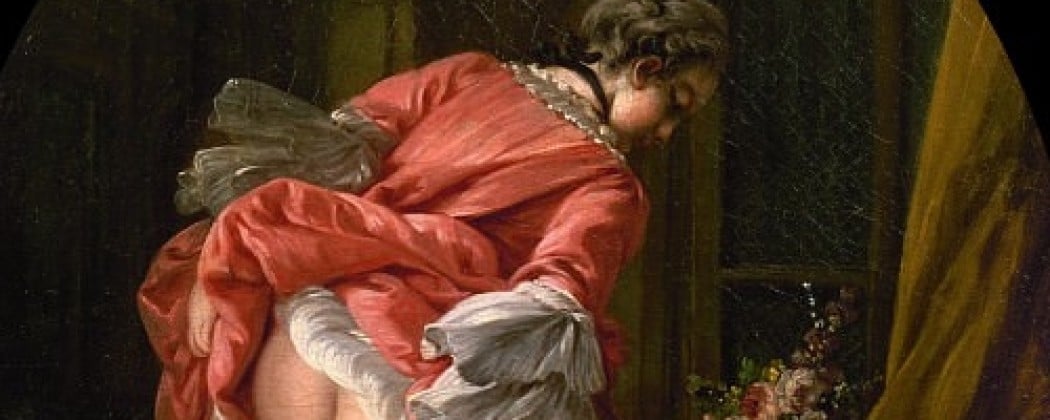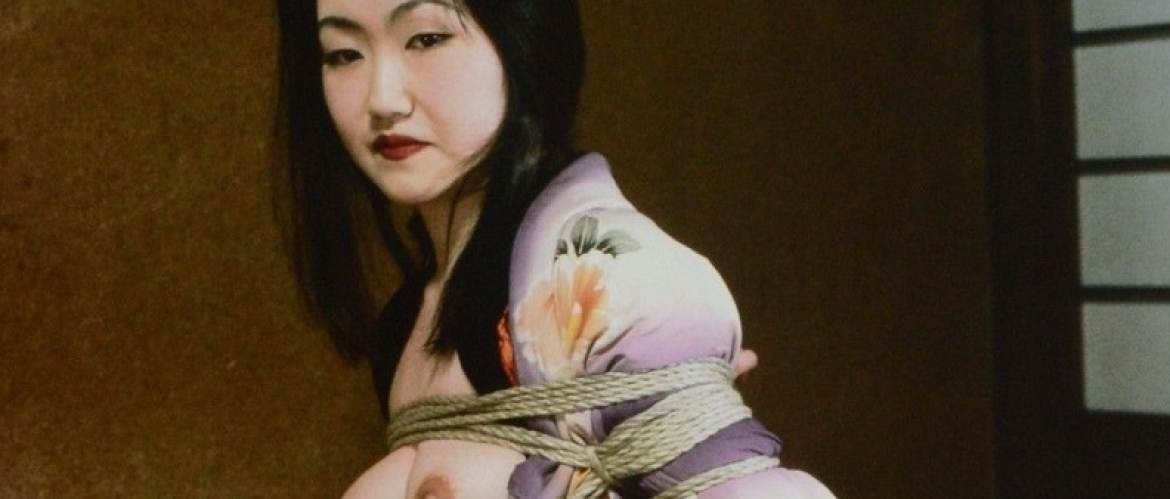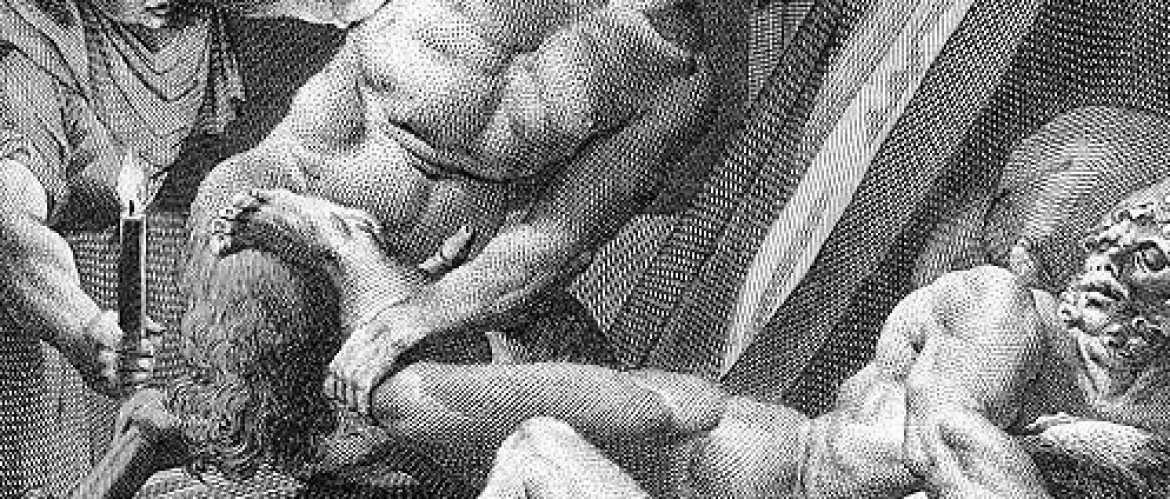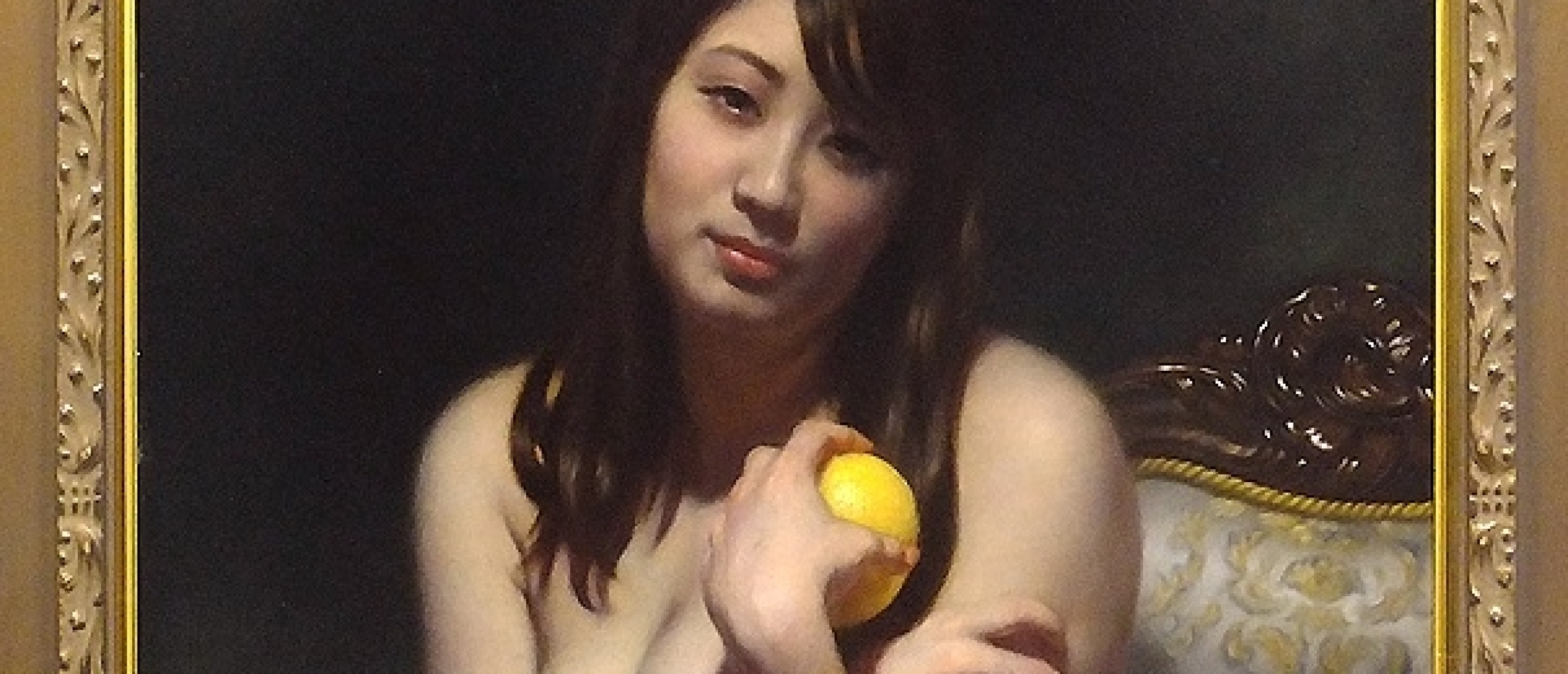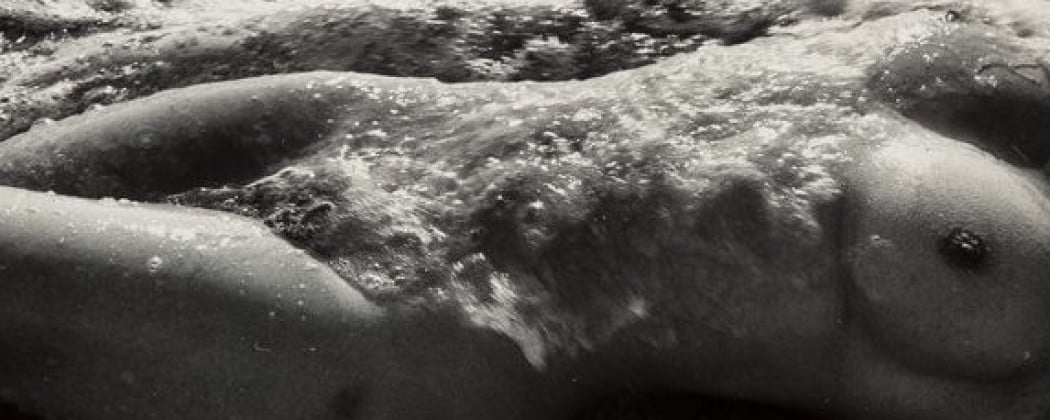
In today’s article, we’ll examine another surrealistic book made by four artists, each of them was a master in his field. Corps Memorable is an album of erotic poems by Paul Eluard with twelve illustrations by famous photographer Lucien Clergue, a preface by Jean Cocteau, and a cover by Picasso. This outstanding work of art was first published by Pierre Seghers in Paris, 1957.
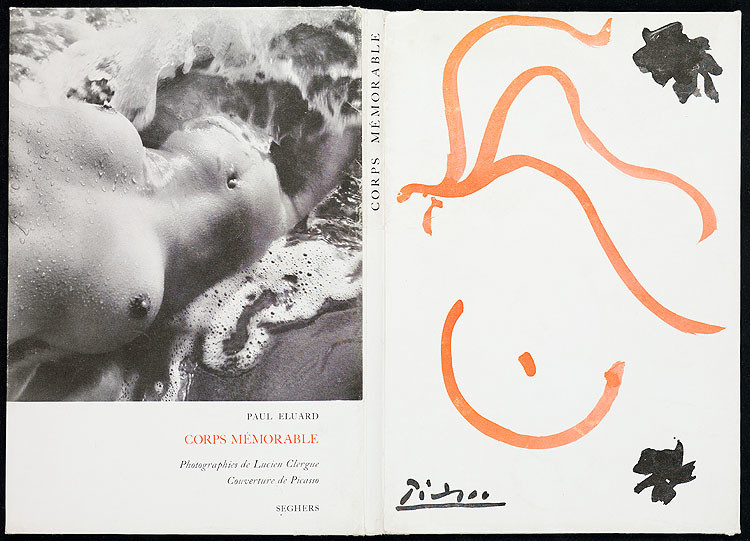
Fig. 1a. The cover of the first edition (taken from kb.nl)
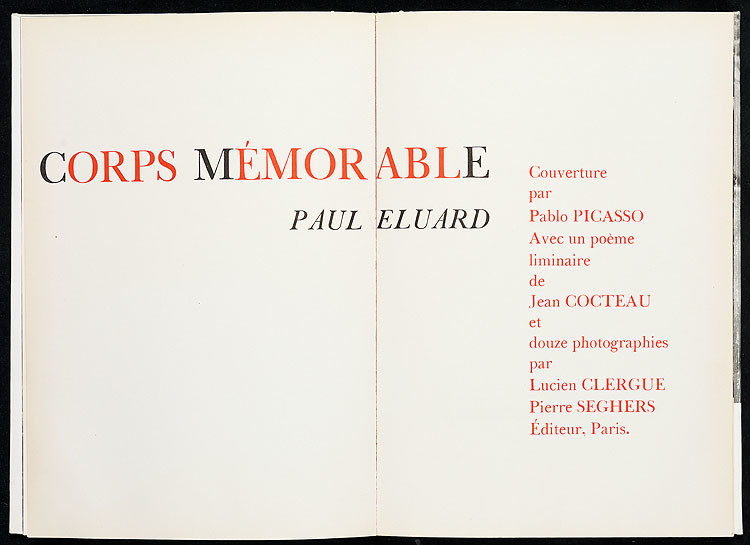
Fig. 1b. The first page of the first edition (taken from kb.nl).
Corps Memorable
It should be mentioned, that Paul Eluard had passed away five years earlier, so Corps Memorable is rather a book of photographs illustrated with sixteen sensual poems. In the 1960s, the German edition and the second French edition appeared.
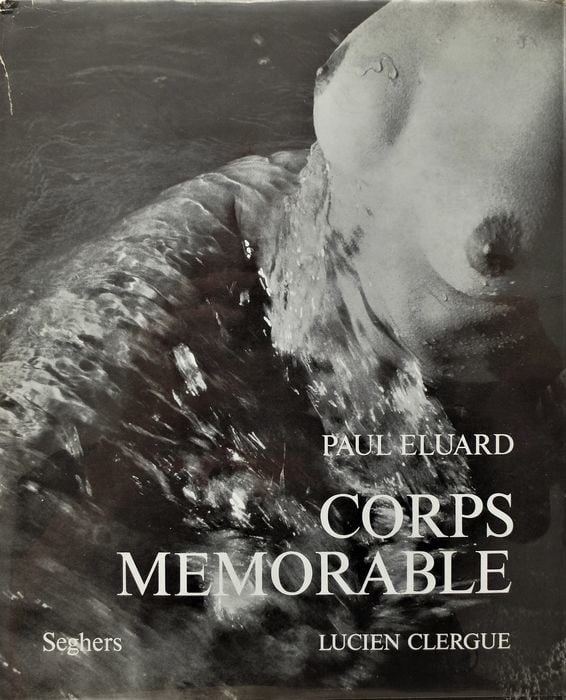
Fig. 2. The edition of 1969 (taken from catawiki.nl).
Eluard’s Poems
As a book of Eluard’s poems, it was first published in 1947, with a dedication to Jacqueline Trutat, his lover, who brought Eluard back to life by “resurrecting kisses” after the death of his second wife Nusch in 1946.
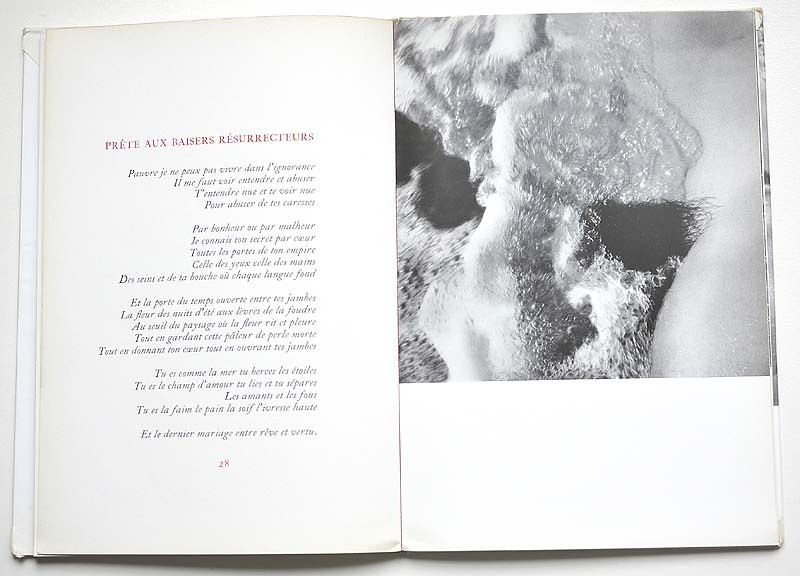
Fig. 3. Ready for resurrecting kisses (taken from live.staticflickr.com)
READY FOR RESURRECTING KISSES
Poor I can’t live in ignorance
I must see hear and abuse
hear you naked and see you naked
And abuse your caresses
By luck or by misfortune
I know your secret not heart
All the doors of your empire
That of the eyes that of the hands
Breasts and your mouth where each tongue melts
And the door of time opens between your legs
The flower of summer nights at the lips of lightning
At the threshold of the landscape where the flower laughs and cries
While keeping this pallor of a dead pearl
While giving your heart while opening your legs
You are like the sea you rock the stars
You are the field of love you bind and you separate
Lovers and madmen
You are the hunger the bread the thirst the high intoxication
And the last marriage between dream and virtue.
A Thesis without a Word
Lucien Clergue, who made this book a precious rarity, was a man of extraordinary talent. He started to learn photography at the age of 15 and a few years later showed some of his works to Picasso. The Spanish artist was intrigued and asked for more images, so Clergue developed his skills to impress the painter. They became good friends after years and Clergue published an autobiographical book Picasso, My Friend in which their friendship is described.
First Photographer
This remarkable person was the first French autodidact who took a degree of Ph.D. in photography. His thesis Langage des sables (1979) contained only images. Clergue was the first photographer to enter the Academy of Fine Arts to a position devoted specifically to photography (wiki). By the way, Clergue was only 23 when he made these photographs for Corps Memorable.
Publicly Sold
Clergue didn’t show the faces of his models, therefore, Corps Memorable was the first nude photography book allowed to be publicly sold.
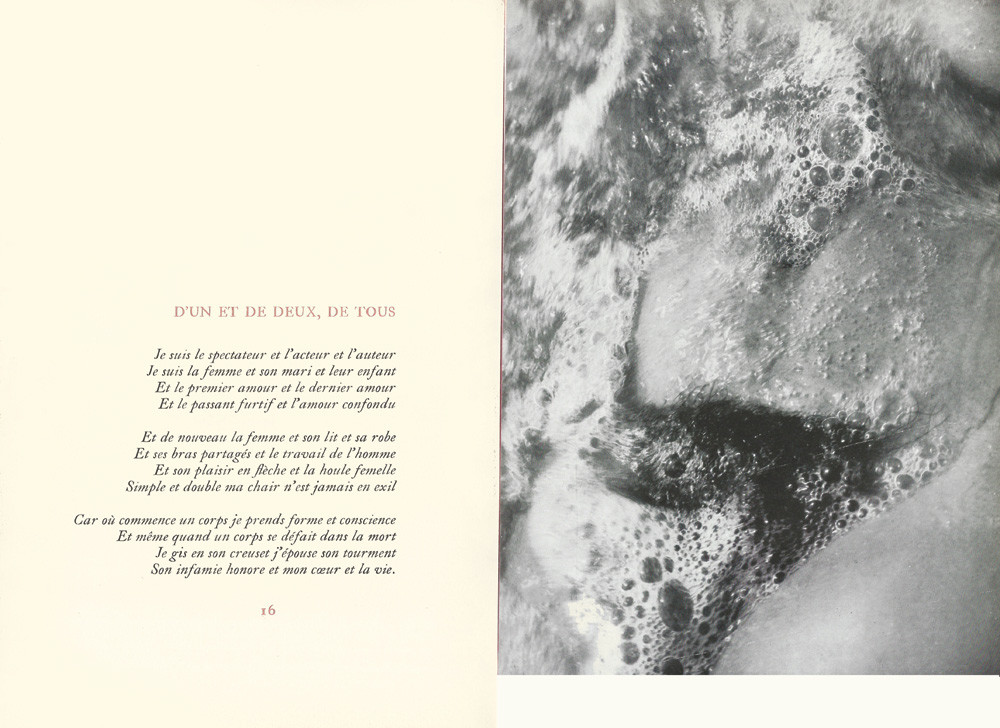
Fig. 4. Of One and Two, of Everyone and the image with public hair (taken from arengario.it)
OF ONE AND TWO, OF EVERYONE
I am the spectator and the actor
I am the wife and her husband and their child
And the first love and the last love
And the stealthy passerby and mad love again
And again the woman and her bed and the dress
and her arms divided and the work of man
and the pleasure arrowing him and the female lipper
Single and double my flesh is never in exile
Because I take shape and consciousness where the body begins
And even when it breaks down in death
I lie in its’ crucible I marry its’ torment
Its’ infamy honors both my heart and life.
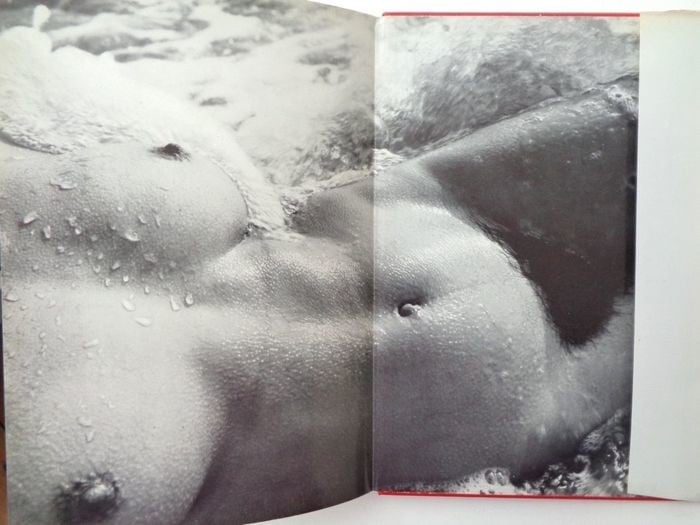
Fig. 5. Image from the first edition (taken from catawiki.nl)
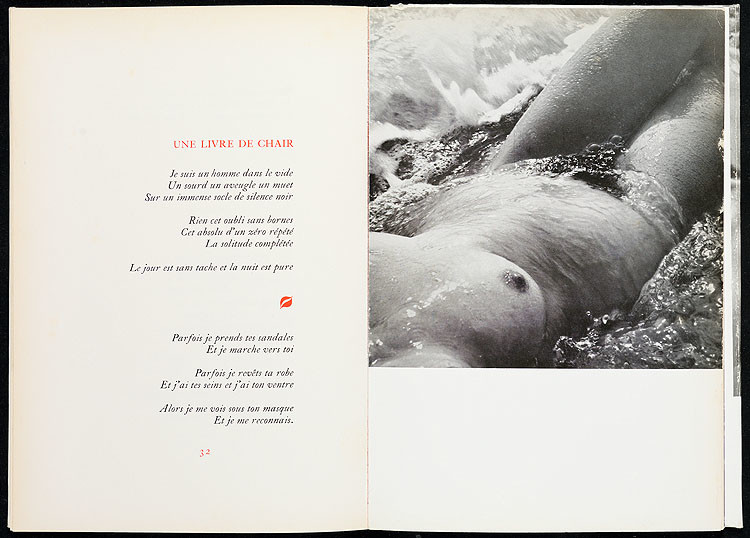
Fig. 6. Page from the first edition (taken from kb.nl)
A POUND OF FLESH
I am a man in the void
Deaf blind mute
On a huge black silence plinth
Nothing this boundless oblivion
This absolute of repeating zero
This completed solitude
The day is spotless and the night is pure
*
Sometimes I take your shoes
And walk towards you
Sometimes I put on your dress
And have your breasts and your belly
So I see me under your mask
And recognize myself.
From Hesiod to Novalis
Femininity
The book itself refers to a correspondence between the water element and femininity. It can be found in lots of different narratives, such as the myth about the birth of Venus in Theogony by Hesiod, or the description of Ofterdingen’s dream in the first chapter of Henry of Ofterdingen by Novalis:
The young man gradually lost himself in his sweet fancies, and feel asleep. Then he dreamed of regions far distant, and unknown to him.[…] The path guided him gently along, and ended in a wide expanse, from which at a distance a clear light shone towards him. On entering this expanse, he beheld a mighty beam of light, which, like the stream from a fountain, rose to the overhanging clouds, and spread out into innumerable sparks, which gathered themselves below into a great basin. […]
Resistless Desire
A resistless desire to bathe himself made him undress and step into the basin. Then a cloud tinged with the glow of evening appeared to surround him; feelings as from Heaven flowed into his soul; thoughts innumerable and full of rapture strove to mingle together within him; new imaginings, such as never before had struck his fancy, arose before him, which, flowing into each other, became visible beings about him.
Soft Bosom
Each wave of the lovely element pressed to him like a soft bosom. The flood seemed like a solution of the elements of beauty, which constantly became embodied in the forms of charming maidens around him.
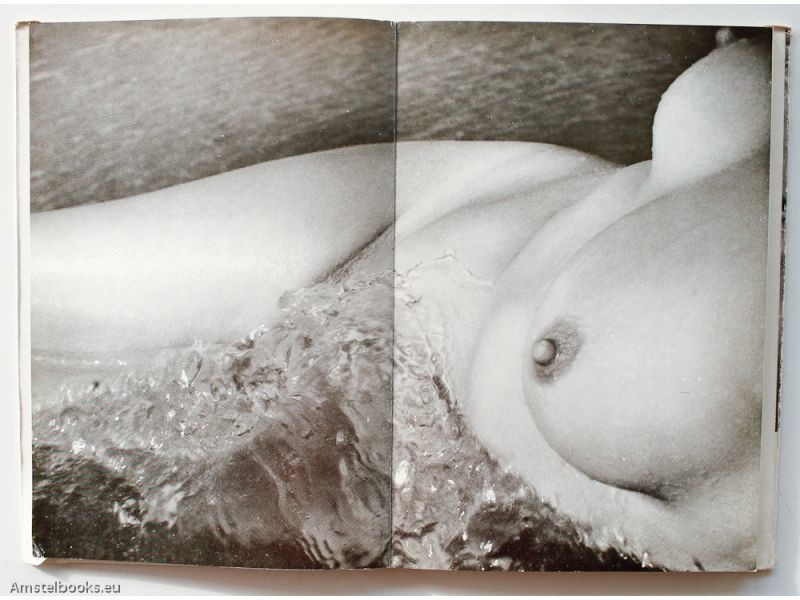
Fig. 7. Image from the edition of 1969 (taken from amstelbooks.nl).
Prenatal
To Eluard, feminity is also synonymous with water and maternity. In one of his poems, he compares being in the arms of the woman to a prenatal state.
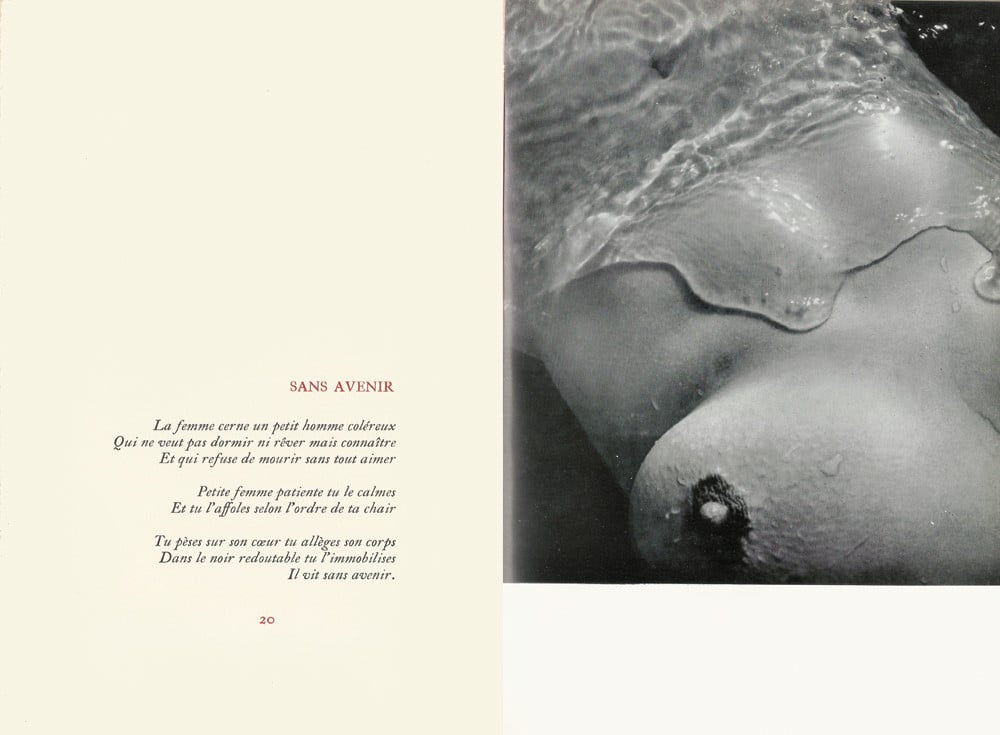
Fig.8. Without Future. Page from the first edition (taken from arengario.it)
WITHOUT FUTURE
The woman encircles an irascible little man
Who does not wish to sleep or to dream but to know
And who refuses to die without loving everything
Little patient woman you calm him
And you madden him according to the order of your flesh
You weigh on his heart you unburden his body
In the formidable dark you immobilize him
He lives without future.
Elle
The identity of the woman in photographs is unknown. Lucien Clergue dedicated this book to the memory of his mother (‘A la mémoire de ma chère mère Jeanne Grangeon‘) which can also be understood as a sort of gentle wordplay (la mere (mother) /la mer (sea)). Though Eluard dedicated the book to Jaqueline Trutat, ‘she’ (Elle) of his poems was still his wife, Maria Benz (Nusch).
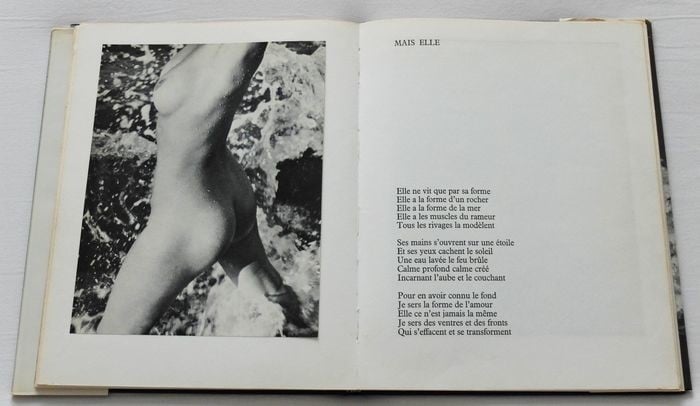
Fig. 9. Page from the edition of 1969 (taken from catawiki.nl)
BUT SHE
She only lives in her shape
She has the shape of a rock
She has the shape of the sea
She has the muscles of the rower
All the shores shape her
Her hands open for a star
And her eyes hide the sun
Running water burning fire
Created cavernous calm
Embodying the dawn and the dream
For having known the bottom
I serve the form of love
It is never the same
I use bellies and foreheads
Which fade and transform
Fresh season hot promise
It is on the scale of flowers
And hours and colors
Level of strength and weakness
She is my loss of consciousness
But I refuse her winter
Here are some more pages of Corps Memorable (1969 edition)…
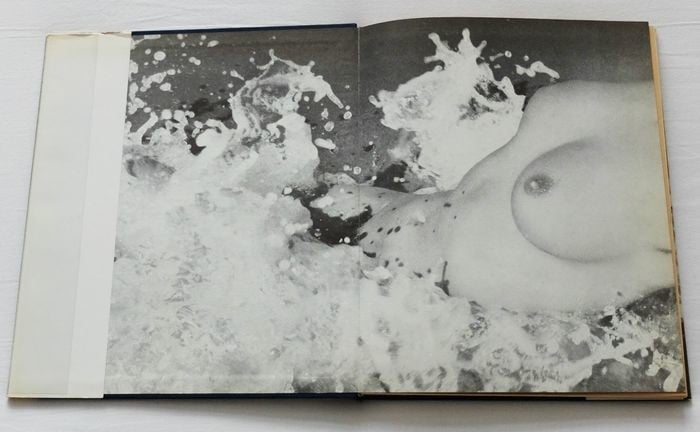
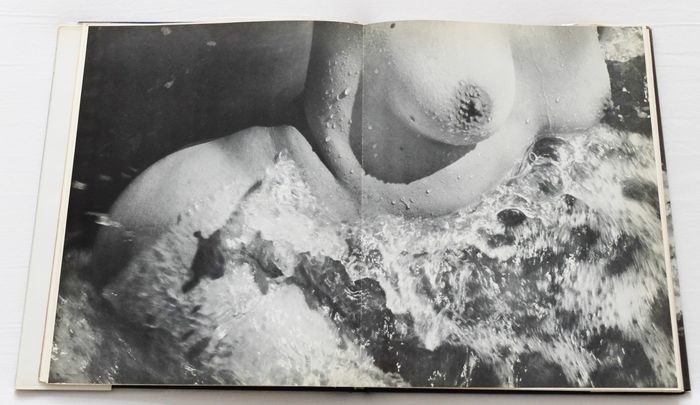
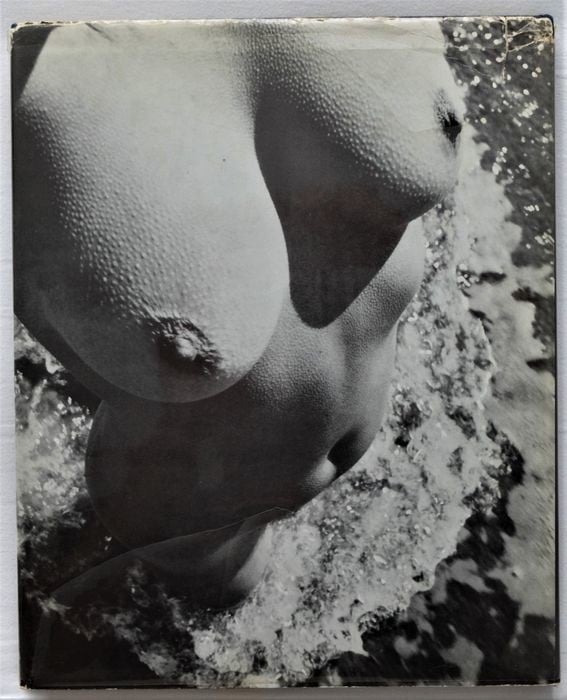
…And some more photos from Nu de la Mer series
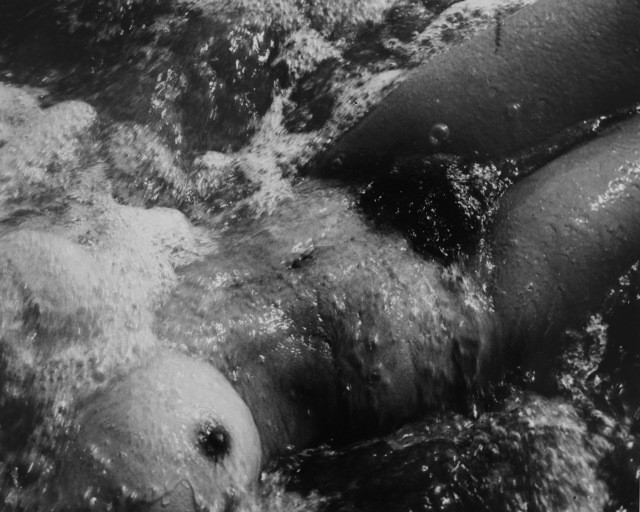
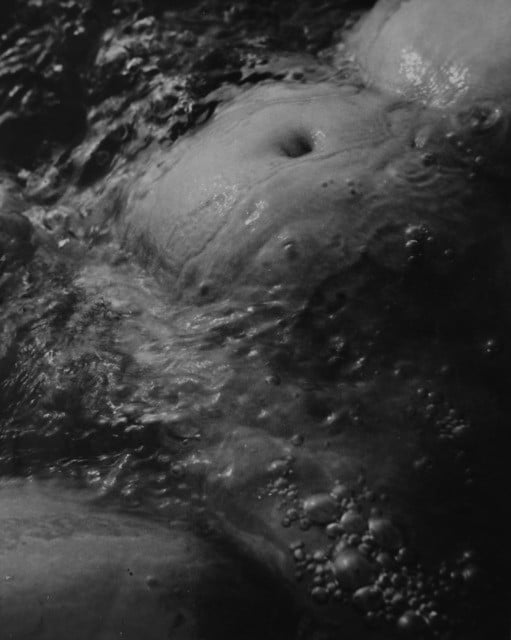
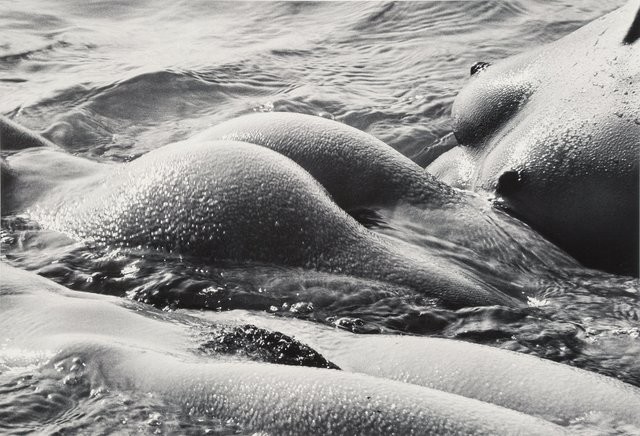
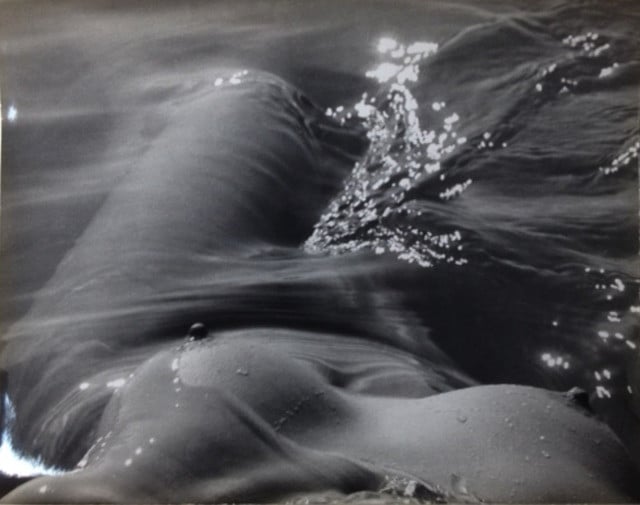
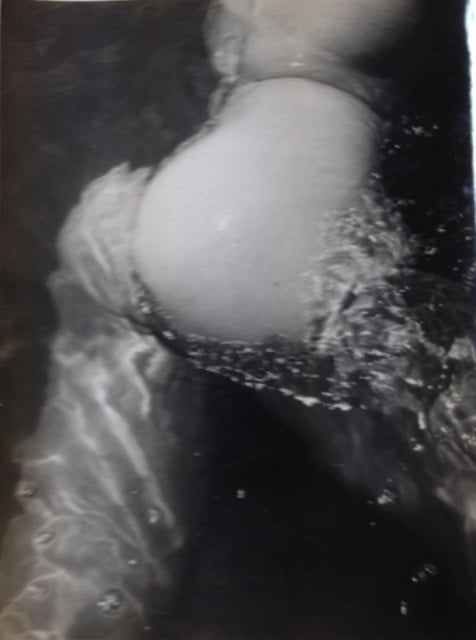
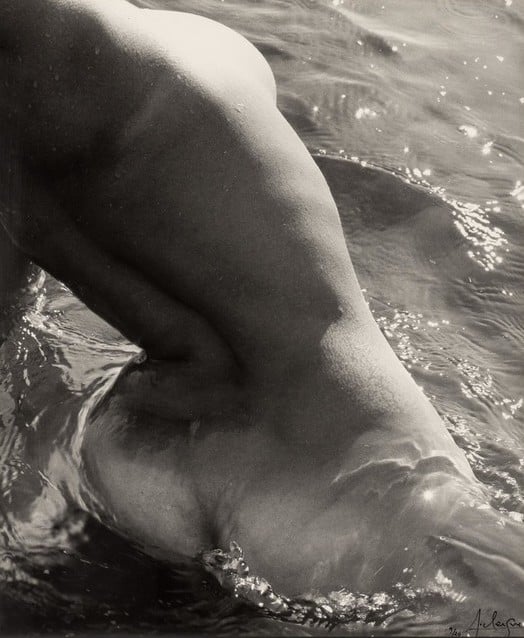
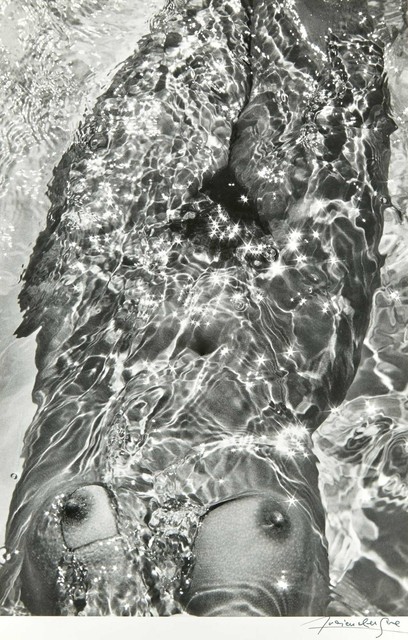
You can check out some interesting articles about the relation Picasso had with shunga by clicking here…!!
Sources: wikipedia.org; National Library of the Netherlands (www.kb.nl); Last love poems of Paul Eluard / translated with an introduction by Marilyn Kallet, 2006; artsy.net; gutenberg.org

